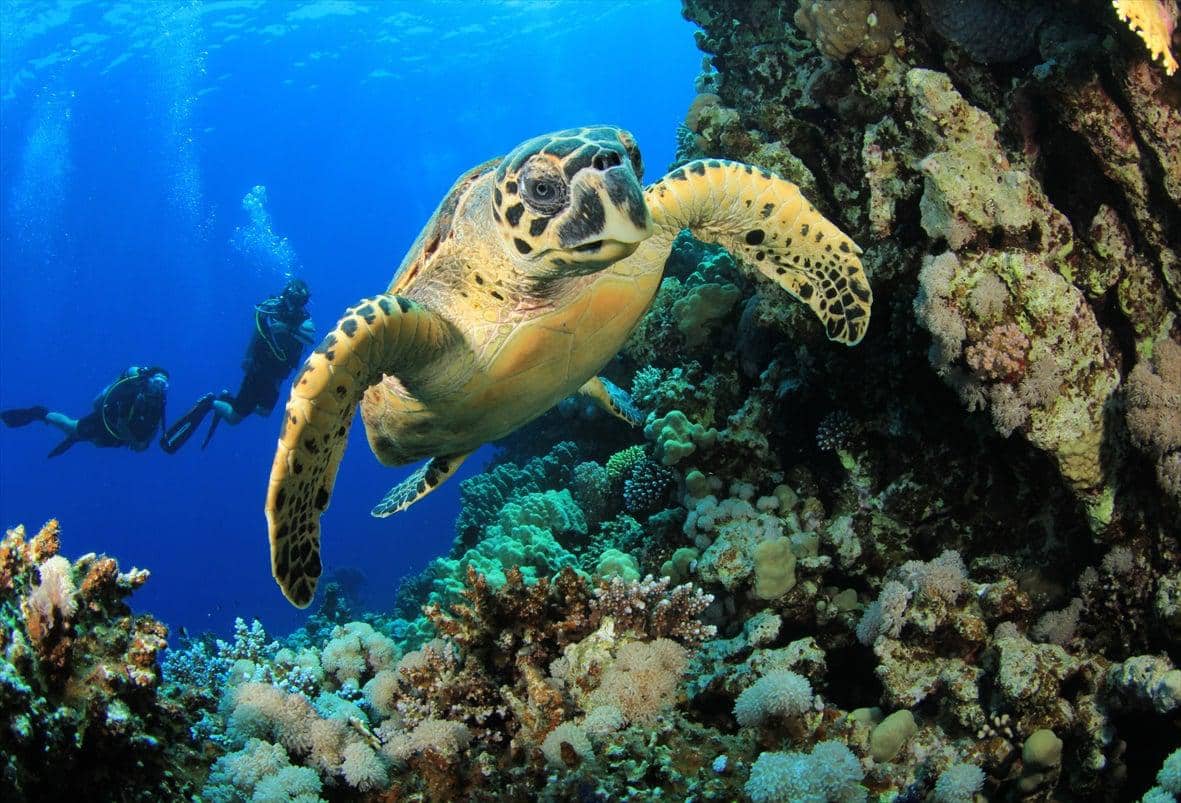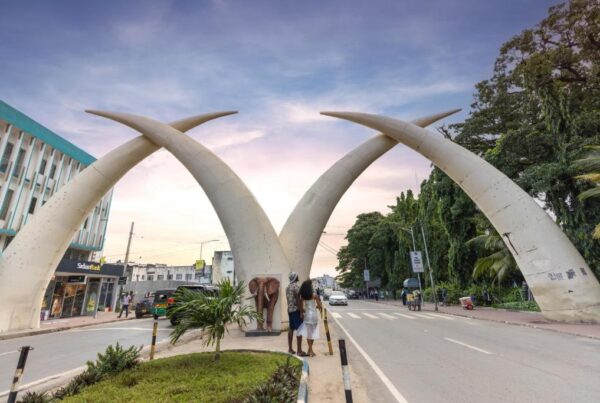Top 10 Best Things To Do in Mozambique
Tucked along the southeastern edge of the African continent, Mozambique remains one of Africa’s most underrated and breathtaking destinations, offering travelers an intoxicating mix of untouched beaches, turquoise archipelagos, vibrant culture, colonial charm, and marine wonder. With its vast Indian Ocean coastline, rich history, and warm, welcoming people, Mozambique is more than just a stop on a map—it is a deeply sensory experience where time slows, nature speaks, and every moment feels unfiltered and alive.
While many travelers are drawn to Africa for its savannah safaris and big game viewing, Mozambique offers a different kind of magic. It is where the rhythm of life is guided by ocean tides and traditional music drifts on warm sea breezes. It is where history is etched into crumbling forts, and coral reefs bloom beneath crystal waters. For those seeking luxury without pretension, adventure with heart, and culture with soul, Mozambique delivers something extraordinary.
Whether as a tranquil conclusion to an East African safari or a standalone escape into coastal bliss, Mozambique captivates with experiences that feel both wild and personal. These are the ten most compelling ways to immerse oneself in this unspoiled corner of Africa.
Island Escapes in the Bazaruto Archipelago: Paradise Perfected
Off the southern coast of Mozambique lies the Bazaruto Archipelago, a dazzling chain of islands floating in the Indian Ocean like scattered pearls. Comprising pristine beaches, rolling sand dunes, and cerulean waters, this marine reserve is a sanctuary for endangered dugongs, sea turtles, whale sharks, and tropical fish in shimmering hues.
Time on these islands unfolds slowly. The days begin with sunrise strolls along powder-soft shores and continue with snorkeling among coral gardens or sailing aboard traditional dhows. The Bazaruto Archipelago is not only a visual marvel—it is a refuge of serenity. Private villas and eco-lodges blend luxury with sustainability, ensuring that every moment spent here connects travelers to nature’s gentle elegance.
Snorkeling and Diving in the Quirimbas Archipelago: Submerged Splendor
In the northern reaches of Mozambique lies the Quirimbas Archipelago, a remote collection of islands that feel untouched by modernity. Beneath its calm, transparent waters lies some of the richest marine biodiversity in the Indian Ocean. Here, coral reefs stretch for miles, and shipwrecks from the colonial era rest beneath the waves, slowly becoming ecosystems of their own.
Diving in the Quirimbas reveals a dreamlike world of manta rays, reef sharks, dolphins, and brilliantly colored fish darting among sea fans. For novice snorkelers or seasoned divers, these waters offer unmatched encounters with marine life and underwater tranquility. Above water, the islands remain steeped in Swahili and Portuguese culture, offering a rare blend of history, hospitality, and natural beauty.
Strolling Through Stone Town in Ilha de Moçambique: A Journey Through Time
Recognized as a UNESCO World Heritage Site, Ilha de Moçambique offers a window into the country’s layered past. Once the capital of Portuguese East Africa, the island’s Stone Town is a tapestry of Arab, Indian, and European influences, with faded colonial mansions, centuries-old mosques, and weathered forts lining narrow, cobbled streets.
A walk through the island feels like stepping back in time. The air is scented with spices, the walls echo with centuries of trade and conquest, and the people move with a quiet pride born from enduring culture. The island’s Fort of São Sebastião and Chapel of Nossa Senhora de Baluarte—among the oldest European buildings in the southern hemisphere—stand as testaments to Mozambique’s global significance during the Age of Exploration.
Experiencing Maputo’s Culture and Cuisine: Where Africa Meets Latin Soul
Mozambique’s capital city, Maputo, pulses with life, music, and a vibrancy that reflects the country’s unique fusion of African, Arab, and Portuguese cultures. Tree-lined boulevards, Art Deco buildings, and lively markets create a cosmopolitan atmosphere unlike anywhere else in East Africa.
At its heart, Maputo is a city for the senses. The local food scene bursts with flavor—grilled prawns, peri-peri chicken, matapa (a traditional cassava leaf stew), and fresh seafood prepared with Portuguese flair. Live music venues offer the soul-stirring sounds of marrabenta and local jazz, while art galleries and street murals showcase the country’s creative spirit and social narrative. Visiting Maputo is not merely a sightseeing excursion—it is a celebration of Mozambican identity.
Gorongosa National Park: A Resurrected Eden
Once devastated by decades of civil war, Gorongosa National Park has risen as one of Africa’s most inspiring conservation success stories. Through tireless restoration efforts, the park has regained its place as a thriving biodiversity hotspot, teeming with lions, elephants, hippos, antelope, and hundreds of bird species.
Located at the southern end of the Great African Rift Valley, Gorongosa’s ecosystems include floodplains, forests, and savannahs, each supporting a diverse web of life. Guided safaris offer deeply immersive experiences, often focusing on ecology, rewilding efforts, and community partnerships. Visitors leave with a profound respect for not just the wildlife but the people who have brought this wilderness back to life.
Sailing on a Traditional Dhow: Drifting into Coastal Tradition
Along Mozambique’s coast, traditional dhow boats still glide across the waters, their triangular sails catching the Indian Ocean breeze just as they have for centuries. These handcrafted vessels, originally introduced by Arab traders, now offer travelers a slow and poetic way to explore the coast and nearby islands.
Setting out on a dhow at sunset, with the sky awash in crimson and gold, is a spiritual experience. The gentle creak of timber, the scent of the sea, and the rhythm of waves create a sense of timelessness. Whether for a day of island-hopping or a twilight cruise, dhow sailing is a soulful embrace of Mozambique’s maritime heritage.
Tofo Beach: Surf, Sand, and Sea Life
On the central coast, near Inhambane, lies Tofo Beach, a laid-back coastal village beloved by both adventure-seekers and peace-lovers. Known for its year-round presence of whale sharks and manta rays, Tofo is a diver’s dream and a surfer’s playground.
But beyond the adrenaline, Tofo captivates with its bohemian spirit, where barefoot cafes line the beach and local fishermen haul in the day’s catch just steps from your lodge. Cultural experiences, from cooking classes to drumming circles, allow for deeper engagement with the community. Tofo is more than a beach destination—it is a place where ocean rhythms and human warmth create a lasting connection.
Exploring the Lagoons of Vilanculos: Gateway to the Bazaruto
As the jumping-off point to the Bazaruto Archipelago, Vilanculos is more than just a transit town—it is a coastal gem in its own right, with stunning beaches, welcoming locals, and a relaxed, colorful vibe. The town’s bustling market and friendly charm offer an authentic slice of Mozambican life.
From Vilanculos, dhow safaris drift through translucent lagoons, past mangroves and sandbanks where flamingos gather. Kayaking, kite-surfing, and paddleboarding offer active ways to explore the calm waters, while beach walks and horseback rides reveal unspoiled stretches of shoreline. Vilanculos invites travelers to slow down and let the ocean set the pace.
Chimanimani Mountains: Hiking Mozambique’s Eastern Highlands
Straddling the border with Zimbabwe, the Chimanimani Mountains offer an entirely different facet of Mozambique’s natural splendor. These misty, granite peaks are laced with ancient forests, hidden waterfalls, and secluded trails that beckon the adventurous spirit.
Far from the crowds, the Chimanimani region offers hiking, rock climbing, and birdwatching in a landscape that feels mystical and untouched. The area’s flora and fauna include rare orchids, blue duikers, and the elusive samango monkey. For travelers seeking solitude and elevation, Chimanimani is a spiritual escape into Africa’s highlands.
Cultural Immersion with Local Communities: Mozambique’s Living Heritage
The essence of Mozambique lies not only in its landscapes but in its people. Whether through visiting traditional Makonde carving workshops, engaging in homestays with fishing communities, or learning local dances and songs, cultural immersion is one of the most rewarding aspects of any journey here.
Mozambicans are known for their warmth, resilience, and pride in their heritage. Storytelling, craftsmanship, and oral traditions remain vibrant, connecting the past to the present in meaningful ways. For travelers who seek depth beyond the scenery, connecting with local culture transforms the trip into something truly profound.
Begin or Conclude Your African Journey with WildHorn Africa
Mozambique is a place where the wild and the gentle, the ancient and the modern, the coastal and the cultural all coexist in poetic balance. It is a country that doesn’t shout for attention but whispers its magic to those who choose to listen. Every reef, ruin, village, and vista invites travelers into something real, raw, and unforgettable.
To navigate Mozambique’s rich tapestry with care, insight, and comfort, there is no better partner than WildHorn Africa. From curated island retreats to community-conscious safaris and tailor-made coastal itineraries, WildHorn Africa brings expertise, ethical travel values, and a love for Africa that shines through every detail.
Book your Mozambique journey with WildHorn Africa—and step into Africa’s most exquisite coastal secret, where the soul of the ocean meets the heart of the continent.









